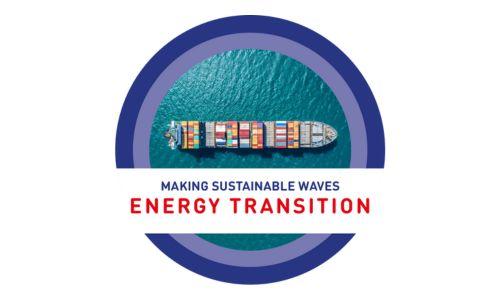Antifouling coatings an essential tool in maritime energy transition

Antifouling marine coatings have a crucial part to play in the maritime energy transition, say Europort 2023 exhibitors Hempel and Chugoku Marine Paints.
To reduce emissions and enhance performance in line with regulations such as the International Maritime Organization (IMO)’s EEXI (Energy Efficiency Existing Ship Index) and CII (Carbon Intensity Indicator), shipowners today are having to examine every aspect of vessel operations. According to Chugoku Marine Paints - an exhibitor at this year’s Europort - owners should be paying particularly close attention to biofouling.
"Antifouling coatings play a pivotal role in making shipping more sustainable,” says Marcus Tullberg, Marketing Manager, Chugoku Marine Paints (CMP). "Marine fouling is the largest contributor to increases in vessel emissions, so for the ship to be sustainable, its underwater hull needs to be as energy efficient as possible and maintain that level of efficiency for the full-service interval.”
CMP’s antifouling coatings prevent the build-up of marine fouling to provide an ultra-low-friction hull surface and thereby reduce a vessel’s overall fuel consumption.
"Biofouling on a ship’s hull creates drag and can significantly reduce energy efficiency as more fuel is required to propel the vessel through the water,” explains Maria Karakitsou, Marketing Project Manager, Hempel - a fellow Europort 2023 exhibitor. "This is why the choice of coating on a ship’s hull is so important. Our 'Hempaguard’ range of premium hull coatings minimises resistance for improved hull performance and reduced fuel consumption and emissions.”
According to Hempel, Hempaguard’s combination of silicone-hydrogel Actiguard technology and controlled biocide release achieves average fuel savings of up to 8 per cent over the entire docking interval compared to best-in-class antifoulings.
Antifouling to cut emissions
Such is the impact of biofouling on vessel emissions, that demand for antifouling coatings is growing fast. In fact, Karakitsou points to a 2023 Lloyd’s List survey revealing that antifouling coatings are the number-one energy-efficiency technology deployed by shipowners to meet regulatory requirements.
In March 2023, Hempel announced that it had joined the IMO’s Global Industry Alliance (GIA) for Marine Biosafety, which, Karakitsou says, can play a significant role in shipping’s energy transition.
"We are delighted to be part of the GIA for Marine Biosafety, through which we can contribute to the acceleration of maritime decarbonisation and the protection of marine environments,” she says. "As a member of the GIA, we will collaborate with governments and NGOs to provide best practice and guidance on reducing hull biofouling and its environmental impact.”
Alongside alliances like the GIA for Marine Biosafety, events such as Europort can bring industry stakeholders together to collaborate towards a more sustainable shipping sector, comments Tullberg. "The environmental challenges facing the maritime industry are complex,” he says. "A sustainable shipping sector will require collaboration between all maritime stakeholders - and Europort provides a great opportunity for these parties to connect and bring about real change.”
Join the discussion on Energy Transition at Europort 2023, 7-10 November at Rotterdam Ahoy.



